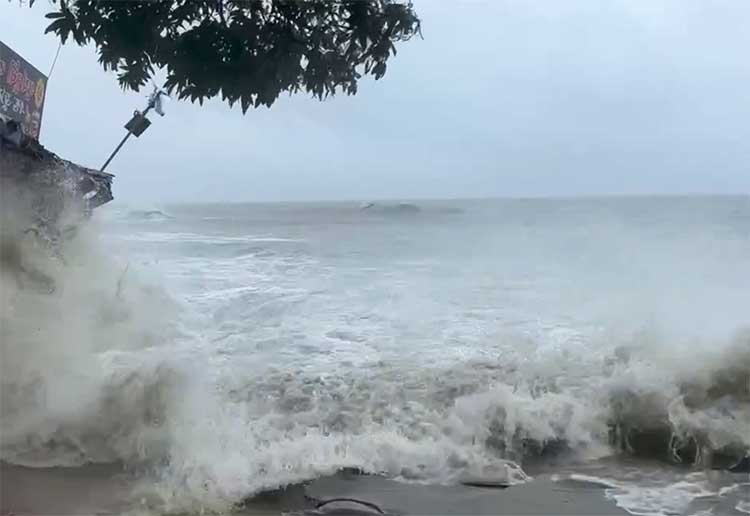
In the early days of June 2024, the Indian Ocean bore witness to the formation of Cyclone Remal, a formidable and rapidly intensifying tropical cyclone. This storm, characterized by its ferocious winds and torrential rains, carved a path of destruction through several coastal regions, leaving a lasting impact on both the environment and the lives of countless individuals.
Formation and Trajectory
Cyclone Remal began as a low-pressure system in the southeastern Indian Ocean. Favorable atmospheric conditions, including warm sea surface temperatures and low wind shear, facilitated its rapid development into a severe tropical cyclone. As it gained strength, Remal's path became increasingly clear, and meteorological agencies across the region issued warnings and initiated preparedness measures.
Landfall and Impact
On June 5th, Cyclone Remal made landfall on the eastern coast of India, near the state of Odisha. Sustained winds reaching up to 150 km/h (93 mph) brought widespread devastation. The cyclone's fury uprooted trees, damaged infrastructure, and disrupted power and communication lines. Coastal areas experienced severe flooding due to the heavy rainfall and storm surge, which inundated low-lying regions and displaced thousands of residents.
Humanitarian Crisis and Response
The aftermath of Cyclone Remal saw a significant humanitarian crisis unfold. In Odisha, over 200,000 people were evacuated to emergency shelters before the storm's arrival. Despite these efforts, many communities were left in dire need of aid. Access to clean water, food, and medical supplies became critical issues as the widespread damage to transportation networks hampered relief efforts.
Local and international aid organizations quickly mobilized to provide relief. The Indian government, in coordination with state authorities, deployed military and disaster response teams to assist in rescue operations and distribute essential supplies. International aid poured in, with countries and organizations offering financial assistance, relief materials, and technical support for recovery efforts.
Environmental Impact
Cyclone Remal's impact on the environment was profound. Coastal ecosystems, including mangrove forests and coral reefs, suffered extensive damage. The storm surge and strong winds eroded beaches and altered landscapes, while the heavy rainfall led to landslides and soil erosion inland. The long-term effects on biodiversity and local livelihoods, particularly those dependent on fishing and agriculture, are expected to be significant.
Resilience and Recovery
Despite the extensive damage and the daunting recovery ahead, the resilience of the affected communities shines through. Local governments and communities are working tirelessly to rebuild and restore normalcy. Efforts are focused on immediate relief and long-term recovery and rebuilding stronger, more resilient infrastructure to withstand future cyclones.
The lessons from Cyclone Remal underscore the importance of preparedness, early warning systems, and community-based disaster risk reduction strategies. Enhancing these measures will be crucial in mitigating the impacts of future cyclones in a region that is increasingly vulnerable to extreme weather events due to climate change.
Conclusion
Cyclone Remal will be remembered for its destruction and the spirit of resilience and solidarity it inspired. As communities rebuild and recover, the experiences from this cyclone will serve as a reminder of the importance of preparedness, adaptation, and cooperation in the face of natural disasters. The journey towards recovery is long, but the determination and unity of those affected promise a hopeful path forward.





